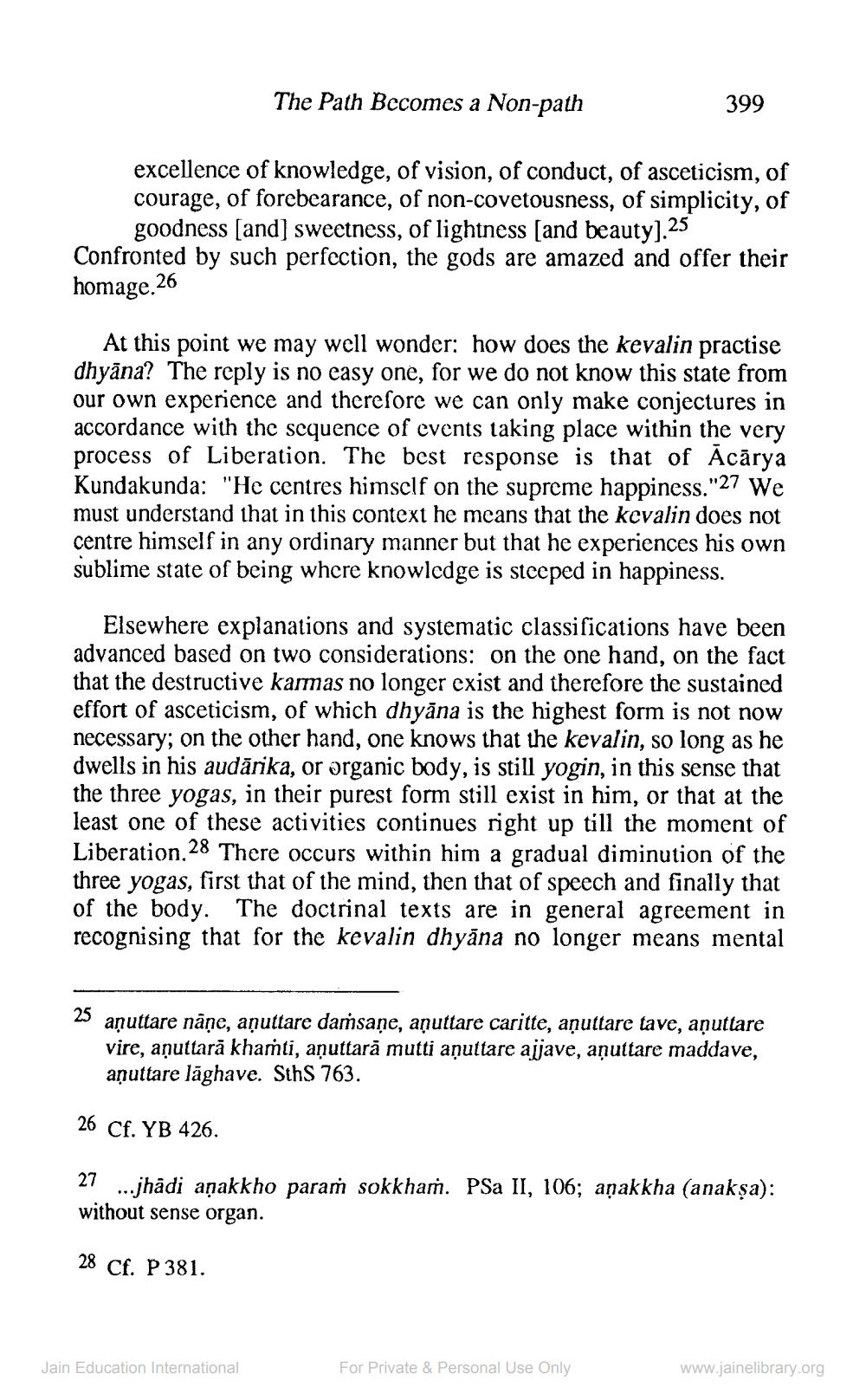________________
The Path Becomes a Non-path
399
excellence of knowledge, of vision, of conduct, of asceticism, of courage, of forebearance, of non-covetousness, of simplicity, of
goodness [and] sweetness, of lightness [and beauty].25 Confronted by such perfection, the gods are amazed and offer their homage 26
At this point we may well wonder: how does the kevalin practise dhyāna? The reply is no easy one, for we do not know this state from our own experience and therefore we can only make conjectures in accordance with the sequence of events taking place within the very process of Liberation. The best response is that of Acārya Kundakunda: "He centres himself on the supreme happiness."27 We must understand that in this context he means that the kevalin does not centre himself in any ordinary manner but that he experiences his own sublime state of being where knowledge is steeped in happiness.
Elsewhere explanations and systematic classifications have been advanced based on two considerations: on the one hand, on the fact that the destructive karmas no longer exist and therefore the sustained effort of asceticism, of which dhyāna is the highest form is not now necessary; on the other hand, one knows that the kevalin, so long as he dwells in his audārika, or organic body, is still yogin, in this sense that the three yogas, in their purest form still exist in him, or that at the least one of these activities continues right up till the moment of Liberation.28 There occurs within him a gradual diminution of the three yogas, first that of the mind, then that of speech and finally that of the body. The doctrinal texts are in general agreement in recognising that for the kevalin dhyāna no longer means mental
anuttare nâne, anuttare darsane, anuttare caritte, anuttare tave, anuttare vire, anuttarā khamti, anuttarā mutti anuttare ajjave, anuttare maddave, anuttare lāghave. Sths 763
26 Cf. YB 426.
27 ...jhādi aņakkho paraṁ sokkham. PSa II, 106; anakkha (anakşa): without sense organ.
28 Cf. P 381.
Jain Education International
For Private & Personal Use Only
www.jainelibrary.org




